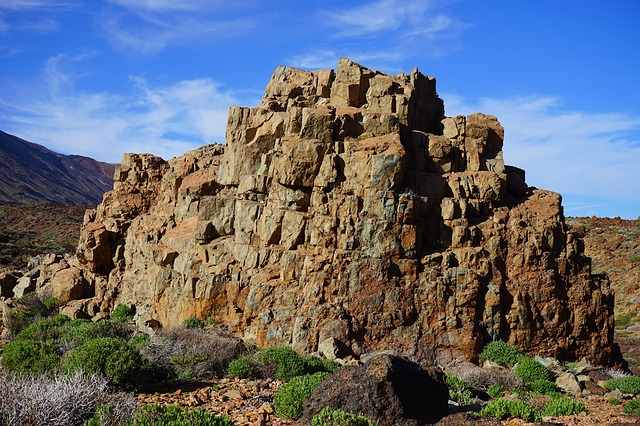
Volcanic rock dust has long been used by organic and sustainable farmers to promote soil health and to grow nutrient dense crops in a variety of conditions.
Not all rock dust is alike, however. Created through the cooling and solidification of dense viscous lava, volcanic basalt is an igneous rock that underlies much of the Earth’s oceans. Some regions of the world are blessed with surface extrusions of basalt, including Central Oregon with its Miocene Era Columbia River flood basalt that is one of the most iron dense basalt flows in the world, and the only one of its kind in North America.
Compared to volcanic rocks which are high in quartz, basalt weathers relatively quickly which means that it begins to release nutrients to plants as soon as the roots make contact. Additional nutrients become available with ongoing decomposition, thereby resulting in a steady flow of nutrients over time.
The benefits of volcanic basalt, when used as a soil amendment, are numerous. Research dating back to the early 1930s and supported by modern data shows that it can help with the improvement of soil’s physical properties to the enhancement of silicon nutrition (which in turn helps boost plants’ resistance to pests and disease).
Yes, but…Is volcanic basalt a paramagnetic rock?
Paramagnetic Rock
Mention “volcanic basalt” and you may get a question about its paramagnetic properties. The basic scientific definition of paramagnetism, from Wikipedia, is:
“Paramagnetism is a form of magnetism whereby certain materials are attracted by an externally applied magnetic field, and form internal, induced magnetic fields in the direction of the applied magnetic field.”
As relates to soil health, the concept of paramagnetism as developed by Dr. Philip S. Callahan says that healthy plant growth depends on soils being paramagnetic, i.e., containing a low-energy force that occurs naturally in volcanic soils but is often stripped away by modern farming practices.
Callahan’s research led him to conclude that the healthiest agricultural soils are highly paramagnetic and energetically aligned with the earth, facilitating the flow of electromagnetic forces from the atmosphere to organic plant materials. In soils where this paramagnetic force has been eroded away, adding a paramagnetic rock like basalt can reestablish the balance necessary for healthy plant growth.
Whether you agree with Callahan’s conclusions or not, basalt’s benefits as a soil amendment stand alone and are well documented. It’s why more and more organic and sustainable growers, as well as backyard gardeners, are using crushed volcanic basalt to improve water retention in the soil, increase biological activity, improve nutrient utilization in plants, and increase resistance to pests and environmental stresses.
###
Cascade Minerals believes that healthy soil equals healthy plants, happy people and a healing planet. Made of all-natural volcanic basalt from Central Oregon, our all-natural Remineralizing Soil Booster returns essential minerals to the soil for more vigorous plants that produce more nutritious food. Our product is OMRI Listed for organic production and is safe to use around pets and children when applied as directed.
